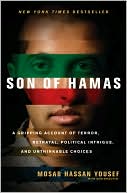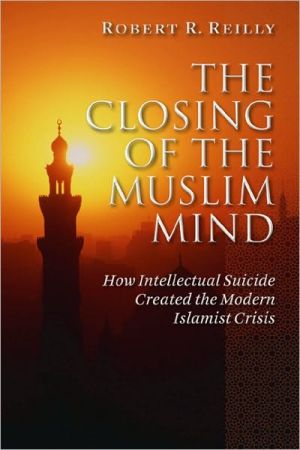Mirror of the Arab World: Lebanon in Conflict
"A vivid picture of the crushing difficulties faced by every Arab government."—Kirkus Reviews\ The security of the West is threatened by escalating turmoil rising out of the Arab states is Lebanon, a small, tortured country poised uneasily between East and West. Improbably, this most unique of Arab states has much to teach about the Arab world. Like many Arab little sense of common identity and no strong central government.\ The tumultuous history of Lebanon illuminates not only the...
Search in google:
"A vivid picture of the crushing difficulties faced by every Arab government."—Kirkus Reviews The New York Times - Michael J. Totten Mirror of the Arab World is really two books in one. Mackey's narrative deftly weaves Lebanon's tragic history with that of the Arab Middle East as a whole…Mackey performs the tricky balancing act of demonstrating that Lebanon is unique yet somehow still reflective of all Arab countries. "The world of the Arabs is no longer a mysterious, romanticized region lying somewhere between Europe and Asia," she writes. "It is here. It is now. And it is difficult." Lebanon is especially difficult. Beirut has long been considered a gateway between the West and the East. It is also a doorway to understanding, because to know Lebanon is to know the Arabs. Mirror of the Arab World is an expert depiction of both.
Author's Note 3Maps 5Introduction 7Chapter 1 A Collection of Tribes 15Chapter 2 The Hollow State 41Chapter 3 The Palestinians: Victims and Villains 71Chapter 4 Woe Be to the State 97Chapter 5 Identity in Pursuit of a Nation 125Chapter 6 The Rise of the Shia 157Chapter 7 A Tale of Four Countries 183Chapter 8 Islam as Politics 213Epilogue 255Afterword 267Acknowledgments 273Selected Bibliography 275Index 279
\ Michael J. TottenMirror of the Arab World is really two books in one. Mackey's narrative deftly weaves Lebanon's tragic history with that of the Arab Middle East as a whole…Mackey performs the tricky balancing act of demonstrating that Lebanon is unique yet somehow still reflective of all Arab countries. "The world of the Arabs is no longer a mysterious, romanticized region lying somewhere between Europe and Asia," she writes. "It is here. It is now. And it is difficult." Lebanon is especially difficult. Beirut has long been considered a gateway between the West and the East. It is also a doorway to understanding, because to know Lebanon is to know the Arabs. Mirror of the Arab World is an expert depiction of both.\ —The New York Times\ \ \ \ \ Kirkus ReviewsAbsorbing history emphasizing Lebanon's disastrous post-World War II years. France and Britain created Lebanon after World War I for purely selfish reasons, explains veteran Middle East journalist Mackey (The Reckoning: Iraq and the Legacy of Saddam Hussein, 2002, etc.). She adds that no change in boundaries would have produced a country whose people shared national feeling and democratic institutions, because these were absent throughout the Middle East. At independence in 1946, an informal agreement divided the Lebanese parliament and bureaucracy among Maronite and Greek Orthodox Christians and Sunni, Shia and Druze Muslims. This feeble government exerted little control over the leaders of these sects, who gained influence by granting favors, pulling strings and quashing ambitious opponents. In return they expected absolute loyalty and permanent high office; none paid attention to the public good. Ironically, this corrupt system led to a permissive, laissez-faire economy whose initial prosperity in the 1950s led observers to call Lebanon the Switzerland of the Middle East. This fantasy evaporated in 1958 when a Maronite boss, Camille Chamoun, violated the status quo by arranging his reelection as president. Although trivial compared with later catastrophes, the year-long civil war that ensued claimed several thousand lives before Chamoun resigned. Calm returned, but government weakness persisted, aggravated by the 1970s influx of Palestinians. Their guerrilla raids infuriated Israel, whose repeated retaliations ravaged the nation. A 1975 clash between Palestinian and Maronite militia escalated into another civil war, this one lasting 15 years. It was aggravated by Israeli incursions,the arrival of U.S. forces (which quickly left in 1983 after a suicide bomber killed 240 Marines), and a Syrian invasion followed by an occupation that ended only in 2005. The 1989 cease-fire left the government unreformed and the nation prostrate, bankrupt and even more divided along sectarian lines. Mackey interrupts this relentlessly depressing account with histories of other Arab nations, stressing parallels with Lebanon's experience. A vivid picture of the crushing difficulties faced by every Arab government. Agent: Gail Ross/Gail Ross Literary Agency\ \








